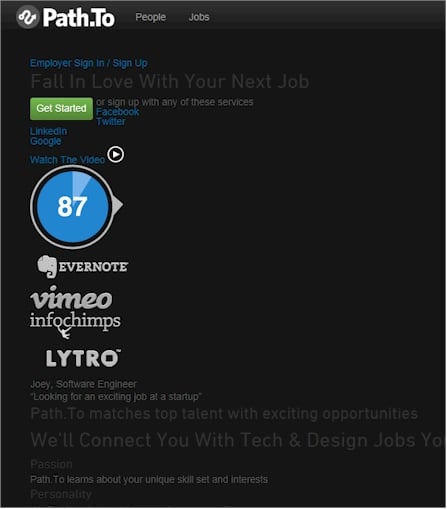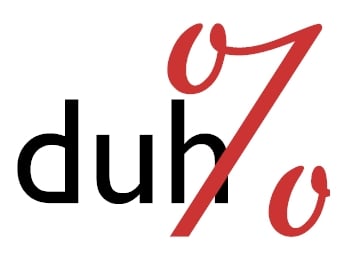In the September 11, 2012 Ask The Headhunter Newsletter, a manager takes us into “the lab” and shows us how he actually interviews candidates to determine whether they can do the job.
Special Edition
Ever wonder whether the job hunting and hiring methods we discuss on this blog really work? Do you wonder whether there are managers that actually expect applicants to do the job in the interview? In this Special Edition, get ready to sit down at the table for an interview with a manager who gets it!
Ray (I’m withholding his last name) heads up product development and business development for an enterprise software company based in the midwestern U.S. This column is not an endorsement of his business — he is not my client — but I sure love his approach to hiring, because it’s what I teach job hunters to do in How Can I Change Careers? The method is not just for career changers, but for anyone who wants to stand out in the job interview by demonstrating how they’ll do the work profitably.
And that’s what this hiring manager does — he asks job candidates to show how they’ll do the work, right in the interview.
I’m ready to tie on a napkin and let Ray serve up his methods in his own words — from a recent series of e-mails, with minimal commentary from me. Then I’d like you to join us on the blog to chow down on these interviewing and hiring methods. Do you think you could score an interview with a manager like this? (You might even have a few comments about how he does it!) This all started innocently enough with a nice thank-you e-mail Ray sent me last week:
Dear Nick,
I love your approach to interviewing. As a hiring manager, I turn my interviews into exercises designed to give job candidates the chance to show me that they can do the job. Sort of Reverse Crocodile Headhunting! Thank you for the wonderful ideas in Ask The Headhunter!
So I asked Ray about his business and how he interviews.
I hire product evangelists, product managers and product marketers for a software company. Our products are sold to large enterprises. Successful candidates need to combine business skills with software technology skills to help design product strategy and product positioning. The sad part about my method is that, as a hiring manager, I have to step candidates through the whole process of showing their value. I have 99% given up on the idea that a superior candidate is going to walk in and be prepared to do this all themselves, without me asking. They all need to read your book!
What do you ask, and what are you looking for in those candidates?
The first question I ask: What two people would you start a software company with?
Some candidates limit their answers to personal friends or family, instead of best-in-the-world business owners or technical software geniuses. E.g., Pete and Mary instead of Warren Buffet and Richard Branson. When I explain they could have mentioned anyone in the world, they say, “Oh, I didn’t know it could be anybody like that.” It kind of implies a closed mind set that won’t work outside the box.
I want to determine whether they study business people and the software business in particular. Most great business people study role models. If they want to work in the software industry, you would think that they actually study the best software companies and the best business minds at some point.
What’s a great response to the question?
My personal response would be Steve Jobs and Leonardo Da Vinci. Give Da Vinci a few months to understand iOS and Objective C and his apps would be remarkable, I suspect! By the way, I’ve never limited the choice to living people.
What I like about Ray’s approach to interviewing is that, while he opens with a “blue sky” question about starting a business, he quickly starts asking candidates how they would actually do the work:
What will your first product be? This is a perfect chance to demonstrate their analysis and strategy skills in our exact business area. If they do their pre-interview homework, this is a lob shot for them to use it to astound me with their ability to think and thus to do the job.
I love it. Ray asks people to do the job — conceive a product! Next questions in the interview?
If they make it this far, our meeting now turns into a chance for them to start working with me as if this were a real product discussion:
- What will you price this at?
- What will our first target market be?
- Who should our first prospecting call be with?
- Who will our competitors be?
- If our first product is destined to never sell successfully… what will be the cause of the failure?
- If it fails because of that reason, what should our next product be?
I might then give them an exact product situation using our current product line and current product market conditions. By the end of this exchange, I know already if I want this person to work for me, or for my competitors! We’ve already had a full dialog about a completely relevant and plausible project idea that would be similar to their eventual work if hired. Nick, in your words, they’ve already shown me that they can do the job and they should already know if they’ll like collaborating with me.
Dear Ray,
Thanks for serving up this week’s column, and for showing readers how a real manager applies Ask The Headhunter methods to interviewing and hiring. Whether you got your ideas from me, or developed them on your own, all I care is that they work!
Now I hope readers will join us on the blog to talk further about this approach. And if there are folks in the audience interested in working for your company, they’re welcome to say so — and if they can show they can score an interview with you, I’ll be happy to put you in touch with them off-line. And if something comes of it, we’ll report back.
What do you think of Ray’s approach to interviewing? Could you score an interview with a manager like this? How would you apply Ray’s methods in other kinds of jobs and companies?
I didn’t ask Ray whether he’s worried that he’s revealed all his interview secrets — and that, now, anyone who applies for a job at his company “will know what’s up.” Do you think it matters? Want a shot at an interview with Ray? You’ll have to prove you’re worth it!
[UPDATE: If you have a serious interest in talking with Ray about a job at his company, drop me a note and I’ll get it to Ray. It’s got to get past me first. Please: No tire-kickers or resume spammers. In fact, don’t send a resume. Just use the ideas discussed here to make your case. My e-mail link is way the bottom of the right-side nav bar of the blog.]
: :














